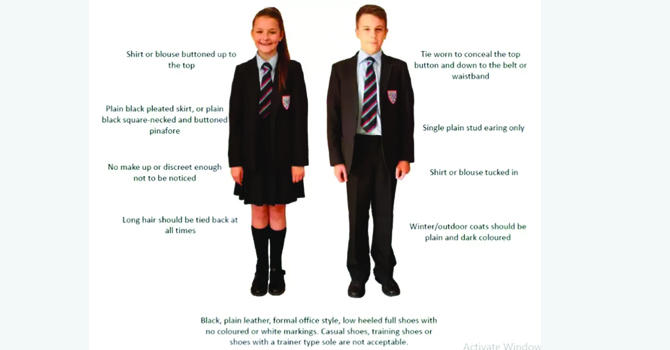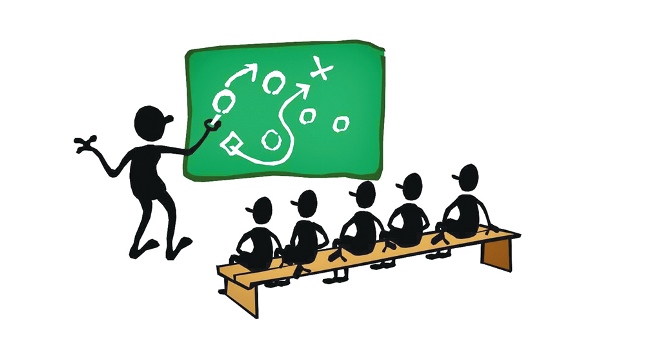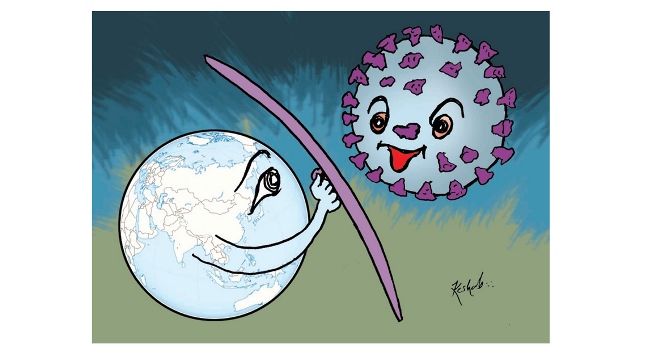Pandemic disrupts learning habit of children

By Manjima Dhakal
Kathmandu, July 4: Like many other sectors, education has been bearing the maximum brunt of coronavirus pandemic. However, unlike some other sectors, education is critically important that cannot withstand the onslaught for long. But for more than a year and a half now, the education sector is reeling from the crisis of the magnitude perhaps never seen before.
The pandemic closed a great many schools across the globe, leaving 168 million students confined to their homes, unable to attend in-person classes, shows a report by UNICEF, made public in September of 2020.
In Nepal, owing to the resurgent pandemic, some seven million students are being kept out of schools after they shut their doors for the second time. Although, a few of them have been attending online classes, a vast majority -- two-thirds -- has no resource to attend online classes, reveals the report.
Despite being least affected by the pandemic, children, mostly from the economically poor background having no access to internet or other gadgets like computer, smartphone or others, risk falling behind because of this. The new academic session in the country started from mid-June, after schools upgraded their students to senior grades. That has raised concern among the education stakeholders that students who were unable to attend online classes were also upgraded.
At the same time, what has kept them awake at night is the erosion in the learning habit of the students. On the one hand, there’s a stark problem of some students not being able to learn remotely; on the other, those well-placed to take advantage of the technology-enabled amenities to learn from home don’t seem serious enough to join the online classes. Many teachers complain that a majority of their students aren’t keen to learn remotely.
Hom Nath Bandari, headmaster of Chitwan-based Prabhat Secondary School, said students don’t attend the virtual classes regularly, though they are found active on other social networks like Facebook. He blamed the lack of concern on the part of their guardians for the problem.
The government asked all schools to upgrade students from Grade I to XI based on their internal evaluations made in the last academic session. Even for Grade XII, National Examination Board has proposed to conduct tests of only 40 full marks because of the pandemic.
Worried about the dying learning culture among the students, Bhandari said that it would be an uphill battle to bring the students on track if or when the school resumed as in pre-pandemic days.
Dr. Basudev Kafle, an educationist, blamed the government for not doing enough research on the alternative ways or methods of learning for the students after the pandemic struck. “The government must have kept all the records of the children’s situations during the pre-pandemic years; it’s unfortunate that there is none. Lack of data and action plans are what have made education sector uncertain,” he said, adding, “Compounding the problem is the absence of seriousness on the part of both guardians and students towards learning. This is an example of bad parenting.”
According to the UNICEF, while schools have remained closed in 188 countries since the pandemic hit, nearly all of them have tried to explore alternative ways to provide their students a chance to learn. More than 90 per cent of the countries have adopted digital and/or broadcast remote learning policies, with 60 per cent doing so for pre-primary education.
In line with the emerging global practice, Nepal has also been adopting the alternative methods.
“Despite that, pupils are not concentrated in their learning through virtual modes. One reason for that is guardians leave them alone thinking that accompanying them during virtual sessions might result in their being disturbed,” said Dr. Minakshi Dahal, another educationist.
Dahal added that children, out of curiosity, tend to visit irrelevant websites and that guardians leaving their kids all alone for a long time has put them at the risk of being exploited by cybercriminals.
She suggested that in order to make the virtual classes effective, guardians have to be vigilant, watching their children with unwavering attention so that their wards are brought back to learning mode once they get distracted.
However, Dr. Arun Kunwar, a child psychologist, has a different opinion. “All stakeholders are needlessly taking the education loss as a serious problem. It doesn’t have to be so, given the global problem it has become,” he said.
Children can cover the losses later after the pandemic is over if they stay mentally and physically sound during the crisis. He asked all the stakeholders to connect their kids with learning activities rather than bothering them with unnecessary things.
Recent News

Do not make expressions casting dout on election: EC
14 Apr, 2022
CM Bhatta says may New Year 2079 BS inspire positive thinking
14 Apr, 2022
Three new cases, 44 recoveries in 24 hours
14 Apr, 2022
689 climbers of 84 teams so far acquire permits for climbing various peaks this spring season
14 Apr, 2022
How the rising cost of living crisis is impacting Nepal
14 Apr, 2022
US military confirms an interstellar meteor collided with Earth
14 Apr, 2022
Valneva Covid vaccine approved for use in UK
14 Apr, 2022
Chair Prachanda highlights need of unity among Maoist, Communist forces
14 Apr, 2022
Ranbir Kapoor and Alia Bhatt: Bollywood toasts star couple on wedding
14 Apr, 2022
President Bhandari confers decorations (Photo Feature)
14 Apr, 2022









